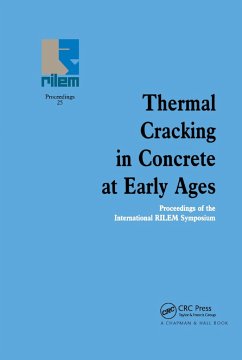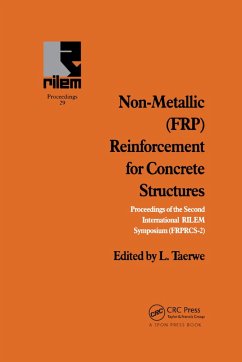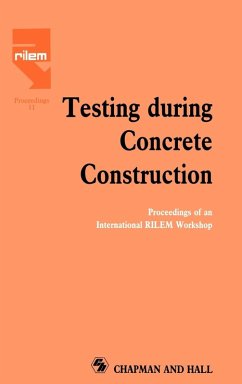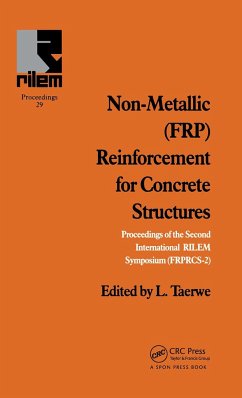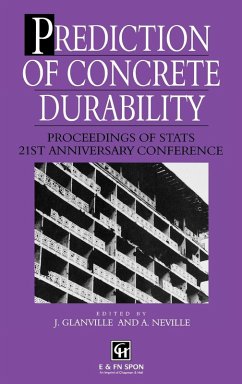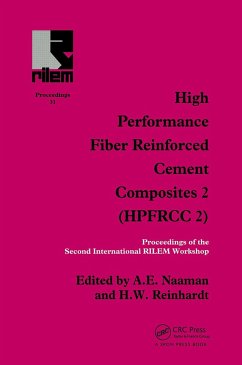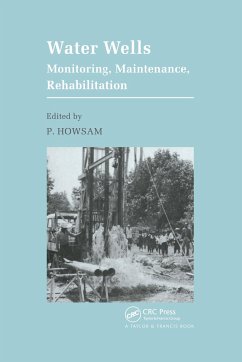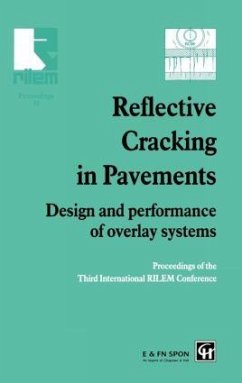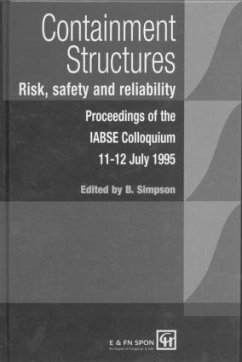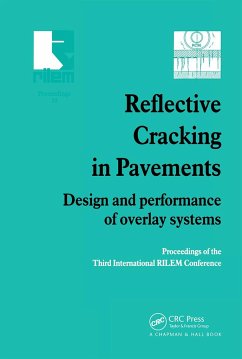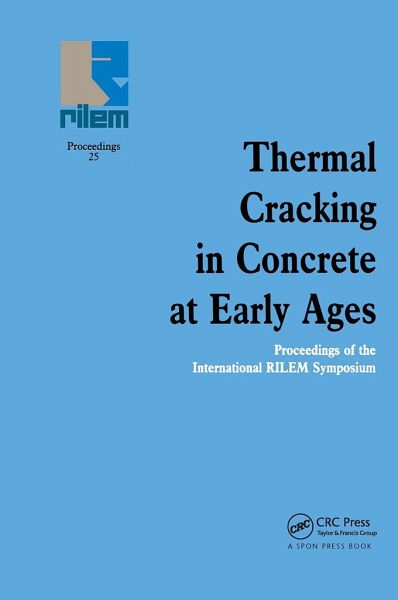
Thermal Cracking in Concrete at Early Ages
Proceedings of the International RILEM Symposium
Herausgeber: Springenschmid, R.

PAYBACK Punkte
241 °P sammeln!
Restraint and intrinsic stresses in concrete at early ages are vitally important for concrete structures which must remain free of water-permeable cracks, such as water-retaining structures, tunnel linings, locks and dams. The development of hydration heat, stiffness and strength, also the degree of restraint and, especially for high-strength concrete, non-thermal effects, are decisive for sensitivity to cracking. Determining thses stresses in the laboratory and in construction components has led to a clearer understanding of how they develop and how to optimize mix design, temperature and cur...
Restraint and intrinsic stresses in concrete at early ages are vitally important for concrete structures which must remain free of water-permeable cracks, such as water-retaining structures, tunnel linings, locks and dams. The development of hydration heat, stiffness and strength, also the degree of restraint and, especially for high-strength concrete, non-thermal effects, are decisive for sensitivity to cracking. Determining thses stresses in the laboratory and in construction components has led to a clearer understanding of how they develop and how to optimize mix design, temperature and curing conditions. New testing equipment has enabled the effects of all the important parameters to be qualified and more reliable models for predictiong restraint stresses to be developed. Thermal Cracking in Conrete at Early Ages contains 56 contributions by leading international specialists presented at the RILEM Symposium held in October 1994 at the Technical University of Munich. It will be valuable for construction and site engineers, concrete technologists and scientists.





